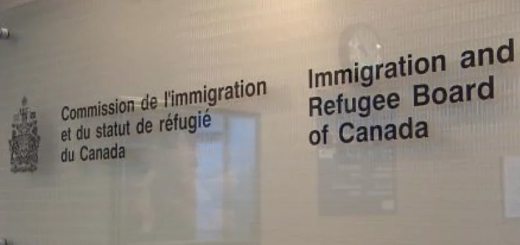Comment on Charkaoui v Canada
Secret hearings to justify the issuance of security certificates and the detention of persons named in them, have been struck down. In an extraordinary, unanimous decision authored by the Chief Justice, the Supreme Court has declared unconstitutional the statutory scheme in the Immigration and Refugee Protection Act that required review of certificates and detention to be held in secret, preventing the person named in the certificate the opportunity to know or challenge the case put against him or her
Specifically, what was challenged in these cases, Charkaoui, Almrei, and Harkat, was the process followed in the detention review hearings and in the hearings considering the reasonableness of the certificates themselves (which are not subject to review or appeal), in which the Court hears the Minister’s evidence in camera and ex parte. The individual is only given a summary of the case, which usually contains little more than public information, and does not include any details of the basis for the certificate or, of course, any information that the Minister believes needs to be protected for national security reasons. No counsel for the detainee, or independent counsel, is permitted to attend the ex parte hearing or to cross-examine or otherwise meaningfully test the evidence, and the rules of evidence themselves may have little or no application. Any testing of the evidence is left to the discretion, willingness and ability of the presiding judge.
After finding that s. 7 of the Charter clearly applied to the appellants, and noting the importance of national security and that “the principles of fundamental justice must reflect the exigencies of the security context”, the Court said that this “cannot be permitted to erode the essence of s. 7,” which, to be met, must provide “meaningful and substantial protection.” The Court cited due process principles dating back to “the days of King John” in finding that the current scheme fails to provide adequate protection to individuals.
In striking down the secret hearings, McLachlin CJC held that the legislation failed to meet certain requirements of due process. First, the judge is not able to make a decision based on the facts and the law due to the concern that, as a judge and not an advocate who is able to investigate and challenge the evidence “one cannot be sure that the judge has been exposed to the whole factual picture”. Similarly, the judge does not benefit from full legal argument.
Second, the inability of the detainee to know the case to meet, and to challenge it, is a violation of due process. While noting that confidentiality is of critical importance in national security cases, the deprivation of liberty is also severe, and the scheme fails to draw an appropriate balance by putting all of the burden of determining the reasonableness of the certificate on the judge. As McLachlin CJC stated, “the fairness of the IRPA procedure rests entirely on the shoulders of the designated judge…[who] cannot…bear the heavy burden of assuring, in fact and appearance, that the decision on the reasonableness of the certificate is impartial, is based on a full view of the facts and law, and reflects the named person’s knowledge of the case to meet.”
In short, “the judge’s activity on behalf of the named person is confined to what is presented by the ministers”, and therefore the judge is “not in a position to compensate for the lack of informed scrutiny, challenge and counter-evidence that a person familiar with the case could bring.” This is, the Court noted, the “whole point of the principle that a person whose liberty is in jeopardy must know the case to meet.”
The Court went on to find that the breaches of due process were not justified under s. 1 of the Charter. The Court reviewed prior procedures followed by SIRC, and by the Arar Commission that permitted an independent counsel to participate on behalf of, essentially, the detained person. It noted that the United Kingdom has a “special advocate” system. “Why the drafters of the legislation did not provide for special counsel to objectively review the material with a view to protecting the named person’s interest, as was formerly done for the review of security certificates by SIRC and is presently done in the United Kingdom, has not been explained.” That system may not be perfect, the Court said, but it better protects s. 7 interests.
Another aspect of the case dealt with the inability of non-residents to obtain a timely review of their detention, which can only occur after the certificate has been found to be reasonable – which may take years. This lack of timely review breaches ss. 9 and 10 of the Charter, the Court held, and was not saved by s. 1. The Court did not, however, find that the length of detention and the circumstances of it (such as being held for years in short term facilities with few amenities) constituted cruel and unusual punishment under s. 12 of the Charter.
In interesting asides, the Court also addressed arguments relating to the rule of law, and s. 15 of the Charter as it applies to foreign nationals.
In the result the Court struck down the provisions dealing with secret hearings for confirmation of certificates and review of detention under them, but has suspended its declaration for one year in order to allow Parliament to legislate a new procedure. The provisions dealing preventing timely review of detention of foreign nationals were struck down immediately.






Join the conversation